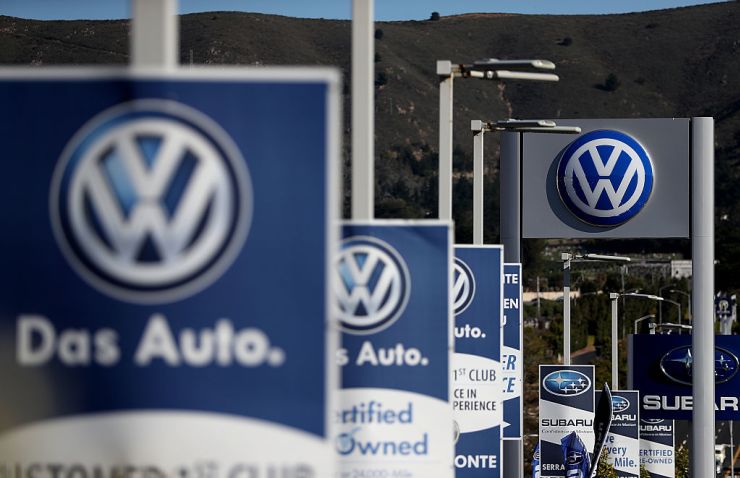
Volkswagen said Thursday it would continue to hope for the best possible outcome amid heightened fears that the U.S. could soon impose tariffs on EU cars.
But, the German automaker emphasized it plans to monitor the prospect of additional charges with a sense of realism too.
It comes after President Donald Trump said in February that he would impose tariffs on cars imported from the EU if U.S. talks with the bloc couldn’t produce a new deal. The EU has since threatened to tax 20 billion euros ($22 billion) worth of U.S. goods.
Both sides have cautiously hung on to existing agreements, promising to take no action until talks are concluded.
“We certainly hope that the trade disputes can be resolved but it is no secret that 100% of the Porsche cars are being exported from Europe to the United States,” Frank Witter, chief financial officer of Volkswagen, told CNBC’s “Squawk Box Europe” on Thursday.
He explained that approximately 70% of all Audi products were sold in the U.S., while for Volkswagen passenger cars it was a very small percentage being exported from Europe to the U.S. since most of their cars were built in North America.
“So, we still hope for the best, we do whatever we can but we are not party to the negotiations … We continue to be optimistic but also realistic,” Witter said.
Earlier this year, Volkswagen CEO Herbet Diess said the carmaker would need to redouble its efforts in 2019 in order to meet its ambitious annual targets.
Diess told the Financial Times in February that the biggest risk to Volkswagen’s 2019 profit would be potential tariffs from Trump’s administration.
At the time, he estimated the worst-case scenario regarding potential U.S. tariffs could cost around 2.5 billion euros a year — roughly 13% of expected earnings.
Earnings in line with expectations
On Thursday, Volkswagen reported first-quarter earnings in line with expectations, as the company attempts to increase the pace of its transformation.
The German firm posted operating profit of 3.9 billion euros ($4.4 billion) for the first three months of the year. That compared with operating profit of 4.2 billion euros a year earlier. Analysts polled by Reuters had expected first-quarter operating profit to come in at 3.9 billion euros.
Shares rose over 2.3% during early morning deals.
Volkswagen, which is still battling to recover from a 2015 scandal over emissions test cheating, also said it had decided to take a 1 billion euro charge in the first quarter, as a result of legal risks.
“It is certainly very unfortunate that we had to book more provisions but we assess every single risk and exposure we have continuously and it was the point in time to make those provisions,” Witter said.
The company confirmed its full-year guidance and said it expected sales to increase as much as 5%. It projected an operating return on sales between 6.5% and 7%.
Revenue advanced 3.1% to 60 billion euros for the first three months of 2019, despite a drop in deliveries.
The company did not provide a net profit figure.























